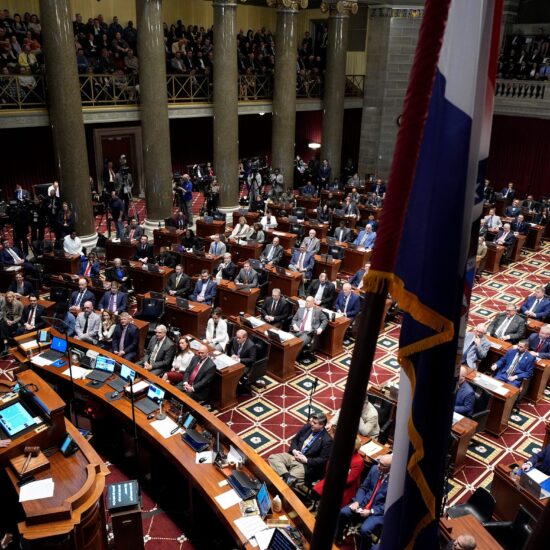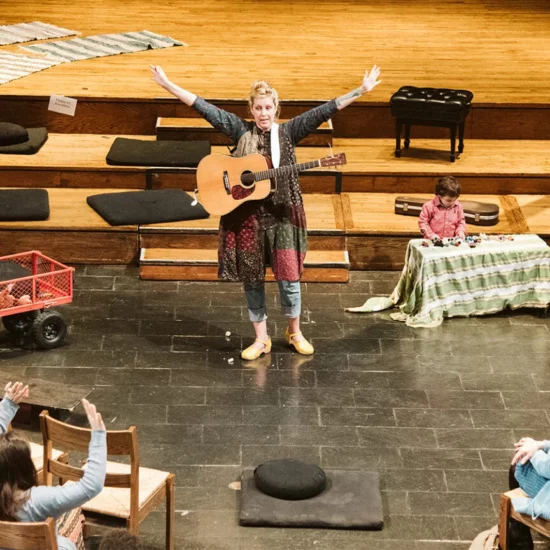DECATUR, Ga. (ABP) – Dissolution of a marriage is painful not only for couples, but also affects communities of faith and especially the children of divorce, a speaker said April 20 at a [Baptist] Conference on Sexuality and Covenant sponsored by the Cooperative Baptist Fellowship and Mercer University’s Center for Theology and Public Life.
Emily Holladay, a student at Mercer’s McAfee School of Theology whose parents split while she was in college, said many people who voiced concern about her parents’ divorce seemed unaware that she, too, was hurting.
“Even though it wasn’t my marriage, the divorce had a profoundly unsettling effect on my life,” Holladay said at the three-day conference at First Baptist Church in Decatur, Ga. “As a child, as a product of my parents’ marital relationship, I was extremely shaken by their broken covenant. And I had no choice in the matter.… There’s nothing I could have done to change my parents’ decision, but I was and am forced to live with the consequences.”
Holladay said churches need to do more to support married couples and families along their journey. “Marriage is hard,” she said. “No one couple can stand alone without the love and encouragement of a community. Married couples should be able to feel like their church community is a place they can come, with all their baggage in tow, for healing and comfort.”
Holladay said that includes pre-marital counseling before couples tie the knot but doesn’t end there. “If a minister and a church are going to stand behind a couple as they enter into an engagement and counsel them in the months before their wedding, they need to do so throughout the couple’s marriage as well,” she said.
“As it is, there seems to be little to no accountability within most churches, and couples do not know where to turn when marriage is not as easy as they thought it would be,” Holladay said. “And since church is where we come in our Sunday best, it is hard to see that they are not the only couple facing challenges.”
Holladay said by signing a marriage license or performing a wedding ministers “should be saying they choose to encourage the couple with all their baggage and commit to walking alongside them as they struggle and as they flourish.”
“So many marriages fail simply because the couples do not have the tools to work through their problems, and they feel their church community would ostracize them rather than support them,” she said.
Holladay said her parents’ experience taught her that more than two people are affected by a divorce. “At its core, divorce is destructive to an entire community,” she said. “Marriage is intended to emanate God’s love, and when it ends, society questions God’s perfect love.”
“Divorce creates division within a community and pain between family members,” she said. “Members of the community feel forced to take sides with either of the divorcees, and family members are torn between their parents, children and the life they were accustomed to.”
Holladay said nothing in her own life has caused her to question God’s love as much as growing up in an unloving home and her parents’ unwillingness to reconcile.
Even after marriages fail, Holladay said, churches can help divorced couples find closure and move forward together. That can include support groups or even just knowing what kind of questions to ask or how to be present with grieving parties. “If the community does not know how or learn how to respond, the grieving process will be extended and we risk continuing patterns of fractured and broken relationships,” she said.
Holladay said children of divorced parents need healthy models of covenant relationships. “I think a major reason why divorce continues to be such a problem in the United States is that so many people grow up in broken households,” she said. “They do not know how to make relationships that work, because they don’t witness healthy relationships. Divorced or divorcing parents can also get so wrapped up in their own problems and struggles that they are not always able to be fully present with their children. As a church body, if we say we are family, we need to stand in when families struggle to provide emotional support for one another.”
“It is my hope and prayer that as churches and Christians, we can learn how to be a covenant community together and how we should respond when individual covenants end, so that children like me and families like mine don’t have to grieve alone,” she said.
-30-
Bob Allen is managing editor of Associated Baptist Press.






